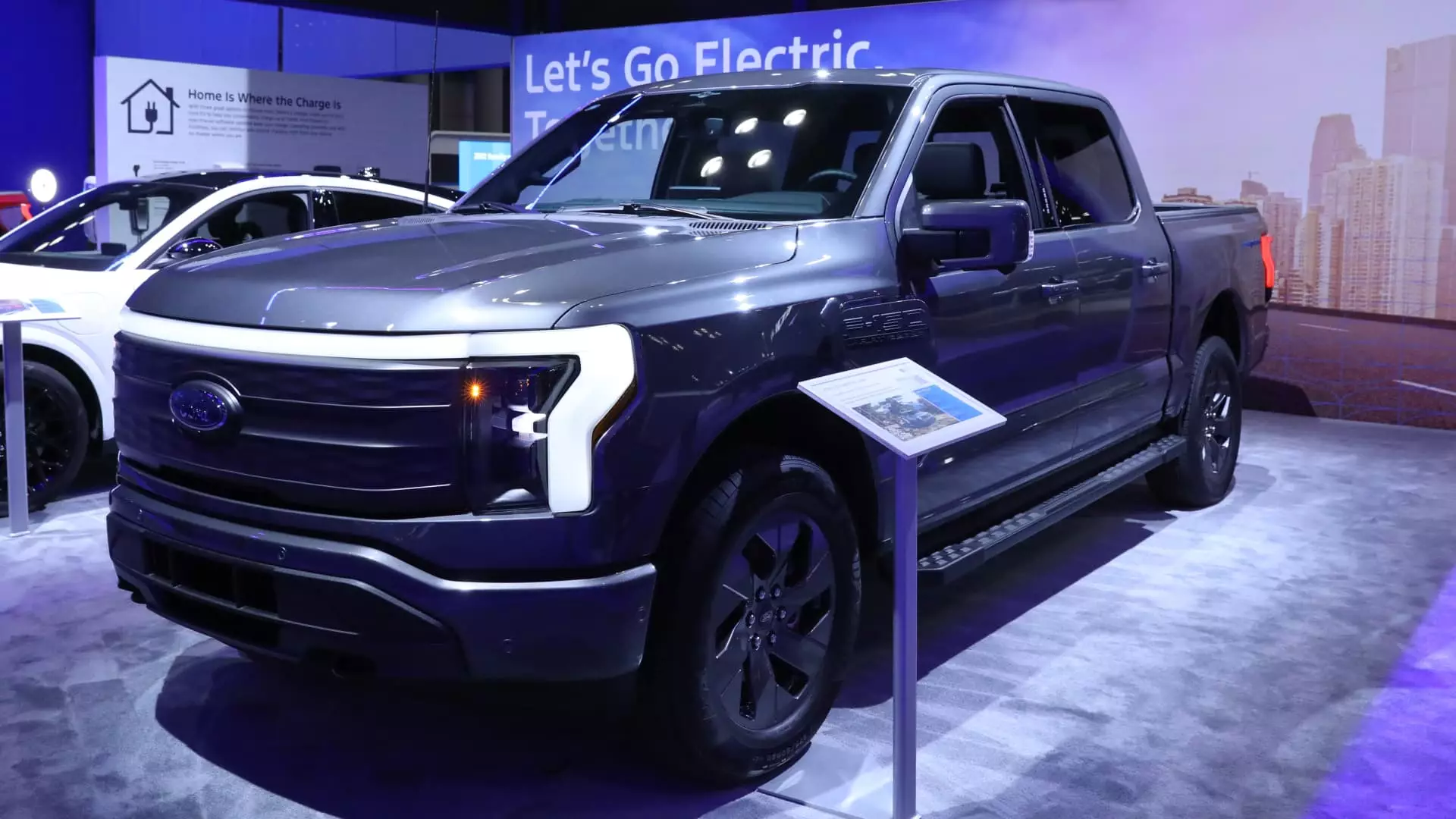Ford Motor’s decision to lower the starting prices of some all-electric F-150 Lightning pickup trucks comes as a surprise to many. The automaker faced quality issues that led to a halt in shipments in early February. However, the company is now preparing to resume shipping these vehicles later this month at reduced prices. The models that are expected to be shipped will see price reductions ranging between $2,000 and $5,500. The most significant price drop is for the mid-level Flash trim, now priced at $67,995, which is $5,500 lower than before. Additionally, there is a $2,500 decrease in the price of Lariat models, now priced at $74,995, and a $2,000 reduction for XLT models, with a new price of $62,995.
Market Response and Adjustment
The automotive industry is experiencing slower-than-expected consumer adoption of electric vehicles, leading to companies like Ford making price adjustments. Ford’s Chief Operating Officer, Kumar Galhotra, mentioned that the pricing changes are a normal response to market conditions, supply levels, and inventory management. He highlighted that finding the right balance for new technologies like electric vehicles takes time. Galhotra did not disclose the exact nature of the quality issues that caused the stop-shipment but mentioned that engineers continually monitor and update software in the vehicles to detect and fix any anomalies.
In a media statement, Ford emphasized its ongoing production efforts, stating that it assembled 144,000 F-150 full-size and Ranger midsize pickups in the first quarter of the year. However, having a large number of vehicles in stock can lead to increased costs for the automaker and delayed deliveries to dealers and customers. Ford’s delay in shipping gas and diesel versions of the F-150 is concerning, especially after facing recent quality issues with launches that resulted in recalls and high warranty costs.
Galhotra reiterated Ford’s commitment to prioritizing quality over rushed deliveries, especially for complex vehicles like the F-150 Lightning. The company has implemented additional quality checks and inspections to ensure that every vehicle meets the required standards before being shipped to customers. Addressing concerns about warranty costs, Ford acknowledged having a cost disadvantage of $7 billion to $8 billion annually compared to its competitors due to warranty-related expenses.
Overall, while Ford’s decision to reduce prices of the F-150 Lightning may attract more buyers, it raises questions about the initial quality control processes and the company’s ability to maintain competitive pricing in the long run. As the automotive industry continues to transition towards electric vehicles, companies like Ford will need to address quality issues promptly and ensure that customer satisfaction remains a top priority in the production and delivery process.

